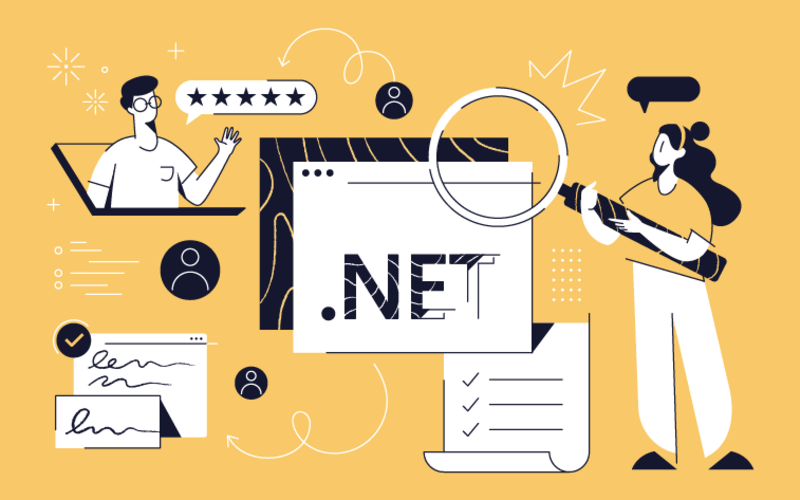Often, hiring managers or others responsible for the hiring, skip the pre-boarding and try to go straight to the immediate onboarding. Or, they wait until the first day when the team member starts the job. But, introducing the new person to the company early on will prove more beneficial than the difficult training down the road after the hiring.
Of course, learning and new information never stop, not even after the initial starting of the job. But, the new team member can do a better job if you prepare them in advance, inform them of everything, and ensure no significant issues remain unresolved once they begin working.
Develop and distribute a new-hire cheatsheet
It’s a great idea to prepare an info pack as part of the onboarding process for anyone you choose to hire. Such an info-pack could be assembling the essential links to platforms, group chats, what they can find, or even FAQ documents containing all crucial things in one file/location.
Remote workers could benefit from this greatly because the more such information they get, the better the pre-boarding process.
You or another person in charge of HR and hiring won’t need to spend double the amount of time later on explaining many things along the way, and those joining the team will feel adequately welcomed and introduced to everything relevant.
Of course, you will be available for the new employees if they come to you with any questions or dilemmas, but they would also have specific guides, resources and files to go through.
The pre-boarding process needs to start with the semi-formal communication, i.e., inclusion into all existing communication channels, like the Slack channels, as an example of the most commonly used out of many others.
It’s a huge mistake to wait until the first day of the start date to do this. The new member could feel even more anxious with all sorts of information piled up all at once, so do not keep them in the dark with idle silence and inactivity.
You should open up a new email address for them and add them to all groups relevant to you and their job position. Whether you instantly give them access to all groups and channels at once or just a few, remember to do this early on. This way, they can relax, learn more about the daily work dynamics, and see where they would communicate the most.
As mentioned above, for the onboarding process to go smoothly, you must give access to the needed information—regardless of whether the new employee will delve into them right away or not.
All remote employees depend mainly on the shared Cloud storage or a shared Drive, or information relevant to them and their regular file storage and programs that need time to adjust to or learn beforehand. Such crucial accesses could be a CMS of some sort (Content Management System), creating new passwords for entering websites and apps of the company, workspaces, etc.
Anything that you think is valuable to that specific remote job role and member, assemble it and enable the access. Make it neatly organized into one or a few easy access locations so that they can refer to them as they grow well into the work.
Schedule frequent brief calls before the first workday
At the workplace, it is quite nice to have a onboarding work buddy.
Such a phrase does not mean something non-work-related or too informal. Instead, think of it as a great way to support the new member in the team. It is also beneficial for the team’s success in the long run and to avoid miscommunication or other problems at work down the road.
Usually, such an ‘onboarding buddy’ would most likely be the team leader for that particular job role, or even a manager who coordinates coworkers. The face-to-face method doesn’t have to be the norm anymore in the virtual world, and as long as you frequently prepare the new hire through practical, brief calls, every part of the work will go smoothly afterward.
In such frequent pre-boarding calls, you can explain more about the files and documents shared before starting, how to avoid or repair small challenges that are likely to appear during the onboarding period, and similar.
Besides, on these calls, the new team member will feel welcomed and be even more eager to start working and give their best.
Invite them to events
To make new members feel like a part of the team, invite them to relevant (or even informal) team events and meetings.
They have yet to learn the ins and outs of everything the work entitles. Even the events or calls where they do not participate much are still important because they could see everyone involved in the company, learn about everyone’s role, and see the group dynamic.
Once they've accepted the job, it is time to let new members access the company platform and learn the business ins and outs by themselves, at first. They can do this at their own pace before you start with more frequent calendar invites over time (meetings, job consultations, etc.) and effectively include them in the work dynamics.
Usually, the first one or two weeks of the pre-boarding process are a lighter dynamic, with essentials and basics, learning and file-sharing, briefs, and meeting calls.
Invite them to all regular group meetings (weekly or at whichever level your company organizes them). Send over call invites for one-on-one meetings, internal and separate team meetings too, where they get to know their peers or team leaders.
Send over equipment or personalized merchandise
Another way to make the new team member feel valued and nurtured from the very beginning is to surprise them with personalized merchandise or equipment.
It is a polite and warm, welcoming way into the business you run.
Also, if you think they have certain obstacles to the job role (slow computer, inadequate equipment, etc.), it is better to take care of that early on. If you do, the work will not suffer, and the employee would not be worried about whether or not they could take on some pressure of unexpected costs.
Ask for a personal intro if possible
Have you ever thought of asking new members to record a very brief intro video of themselves?
A brief introduction video they could record of themselves is not an uncommon practice. Usually, such introductory videos are part of the interview or hiring process itself, especially when there are a ton of applicants and not enough time to have a one-on-one with them all.
In such brief intro videos, the talent acquisition specialists or hiring managers check the English proficiency, and presentability, i.e., the first impressions.
Of course, you should also let them have a chance to say a few words and be welcomed in their first group meeting with everyone too. If you’d like, you can ask them to record a video of themselves and say a few words about their past experiences, career path, and what excites them to start working with you, in just a few minutes total. It should be just a few words of themselves and a few more about this new chapter of their career.
Starting a new job can be stressful, at least for most remote hires, but hiring managers and team leaders can find creative ways to reduce employee anxiety, and one such way is a pre-recorded introduction.
How to create a winning team culture for modern tech teams
Learn to build and nurture cohesion, trust, and culture in hybrid and distributed teams.
The takeaway
The way a company takes care of the hiring speaks volumes of the company culture. It is crucially important to make the remote onboarding as precise and positive as possible and, in such a way, retain good workers and create strong remote teams.
The hiring managers should execute the onboarding experience as best as possible to increase the new hire’s productivity and also for you to ease up your regular heavy volume work.





